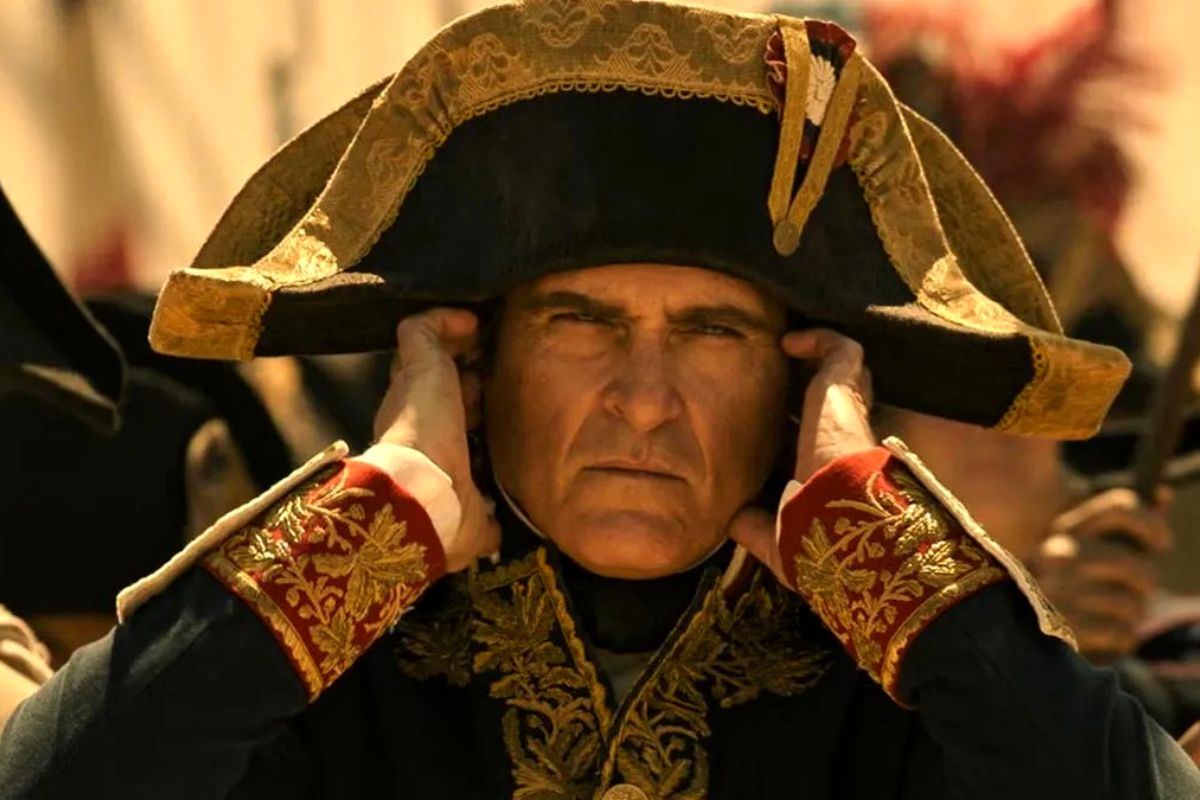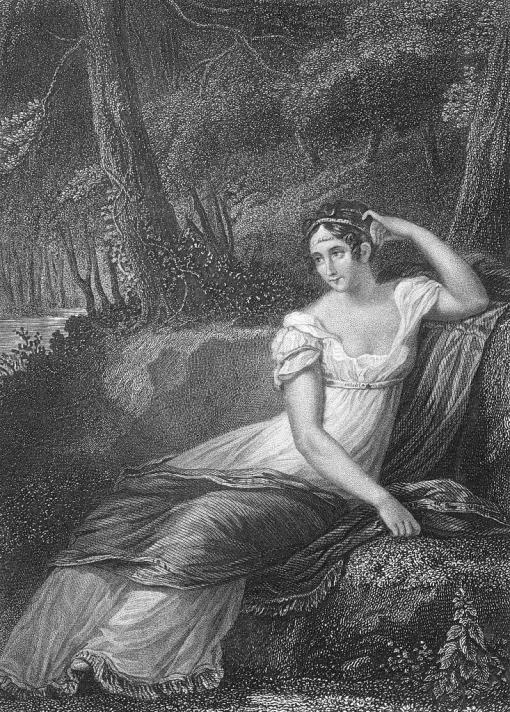‘Napoleon’s Use of This Song Was So Disorienting—And Familiar
And other connections to the 2005 romance.

With exception of the awful scoring of Harriet and the familiarity of a franchise music like Lord of the Rings, I’ve never really had a physical reaction to the orchestral music choices in a film. That changed with an odd choice in Ridley Scott’s Napoleon.
Despite Napoleon‘s heightened emotions, large epic scenes, and being a Ridley Scott flick, the music was very reserved. British composer Martin Phipps told Outlook India that Stanley Kubrick’s Barry Lyndon and Kubrick’s never-realized Napoleon film where major inspirations for Napoleon. Phipps explained American composer Leonard Rosenman produced Barry Lyndon by using music of the time to construct the soundtrack. While Phipps did compose a score for Napoleon, he employed a similar approach as Rosenman. Instead of drawing just upon period music, Phipps also used original compositions from period films.
While watching Napoleon in theaters, I heard a familiar piano song and thought I was being tricked. That may be, as Phipps was pulling from the musical themes, key, and instrumentation—not the actual song. During two scenes showing the early lovebird stages of Napoleon (Joaquin Phoenix) and Joséphine’s (Vanessa Kirby) relationship, a piano plays “Dawn” by Italian composer Dario Marianelli. If that doesn’t ring a bell, this might:
Do you hear what I hear?
To confirm that I didn’t mishear a soundtrack—that I listen to several times per year to fall asleep and recognize from one of my favorite movies—I jumped online to see if anyone else noticed. Film critics Joseph Joyce and Justin Chang also clocked this in a tweet and review respectively. Phipps used an award-winning song Marianelli composed for Pride & Prejudice. Like Rosenman and now Phipps, Marianelli mixed in period music. However, he also composed many original songs inspired by (period accurate) Beethoven early piano sonatas.
With this track not yet appearing on the Napoleon soundtrack, I’m not sure if it’s French pianist Jean-Yves Thibaudet. He beautifully performed all the piano compositions for the 2005 movie. However, if it is, that provides another Italian and French connection to the film. It’s disputed on whether or not Joséphine was born in France or the former French colony of Martinique in the Caribbean. Either way, French enough. Napoleon was born and raised Italian for much of his childhood.
Now, the actual application of this song, I’m torn on. One the one hand, it feels wrong to use a song associated with the ultimate enemies-to-lovers story adapted from a British author to the tumultuous story between these two. While historians say things like Napoleon slapping Joséphine during their divorce signing never happened, their relationship was complicated. In Chang’s review of the film for the L.A. Times, he saw it as subversive. He wrote:
You hear it, too, in the sparkling piano chords of Dario Marianelli’s 2005 Pride & Prejudice score, repurposed in an Austen-tatious musical gesture that adds a touch of poignance to the characters’ looming tragedy: Joséphine is Napoleon’s most meaningful and elusive conquest, and she is destined to precede him in exile.
I get that, but I feel that historical fiction close to (or overlapping) the Regency is veering too close. It’s like how Twilight owns “Claire De Lune” in the eyes of the public, especially in regards to paranormal romance and teen films.
Other connections to Pride & Prejudice

Also, for all of the positive social reforms Napoleon enacted, his policies were not kind to women—actively hostile, in fact. Women actually lost rights to men involving their property (which included children at the time), income, freedom of written expression, and access to divorce. A man could cite any number of things to divorce. However, women had to prove a man had moved a lover into the house. Things got so bad that people with the education and wealth to leave, like Madame de Staël, did just that. So yeah, the music feels in conflict to the feminist ideas and liberties in Jane Austen’s work.
Then again, when I hear that music, second to love at Pemberley, I think of the Regency period. While there’s debate on the Regency beginning right before the 1800s, the quintessential years associated with it is the 1810s. Minus the florets, hats, and other small details, the fashion depicted in Napoleon directly inspired the English style of the Regency.
The era of Napoleon’s reign solidified French arts and cultures as associated with being stylish to Anglophone world. And the fashion, like during the French Revolution, reflected the ideals of recapturing a romanticized view of the Roman Republic. Napoleon would reframe this time in Roman history as an “empire” rather than a “republic” to legitimize his role as emperor. Women’s fashion turned to Neo-classical silhouettes, meaning the empire waistline (right at or below the breast) ruled.
To some, even drawing these comparisons is too much. After all, the French and U.K. were infamously not friendly at this time. Napoleon just scratches the surface and omits competitive imperialist endeavors outside of Eurasia. Also, some viewers felt like the film teetered into anti-French, pro-British propaganda. (I doubt that Scott cares enough to do this.) Still, while these cultures moved ideologically in other directions, musically and fashion-wise, they shared a lot.
(featured image: Sony)
Have a tip we should know? [email protected]
